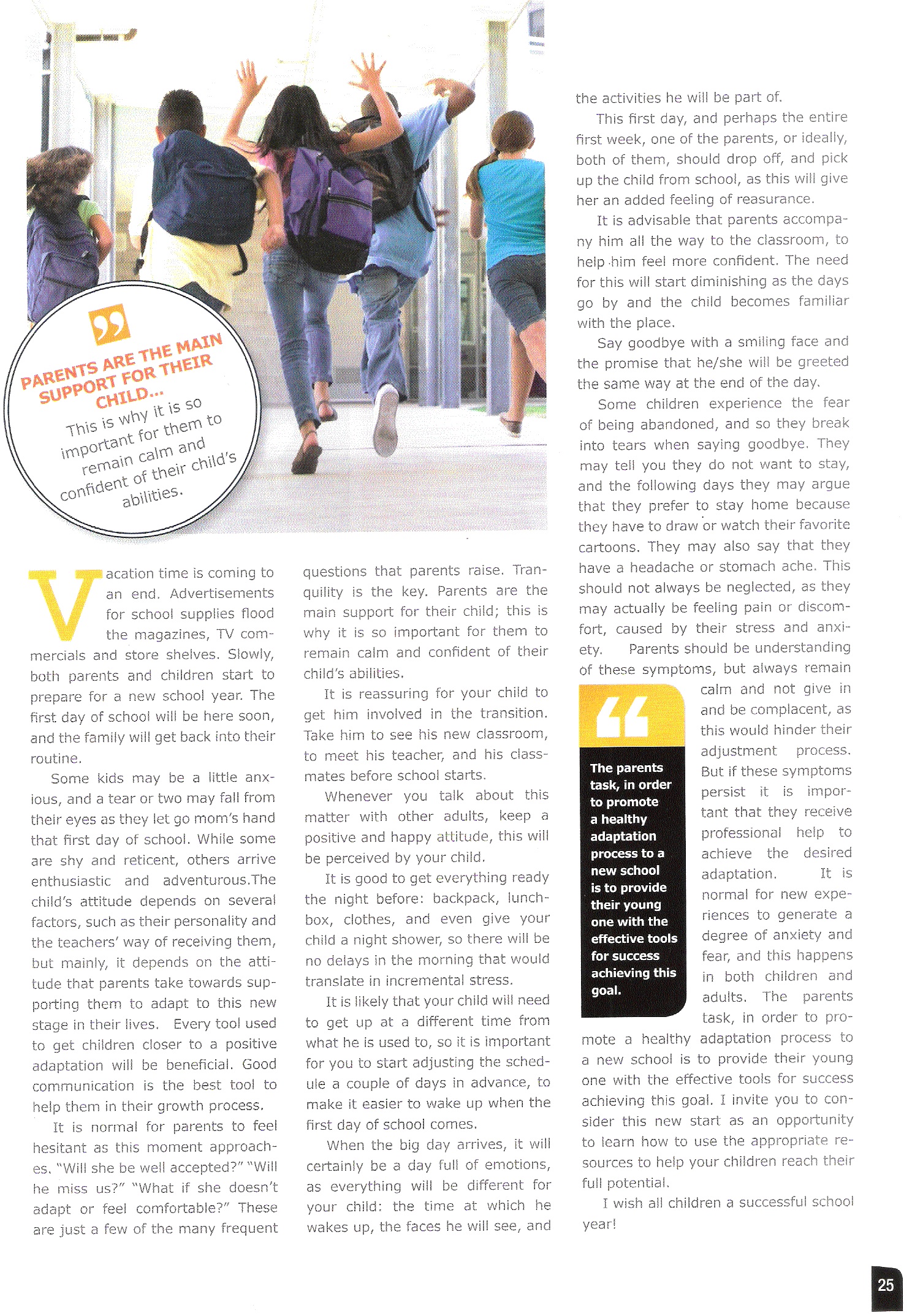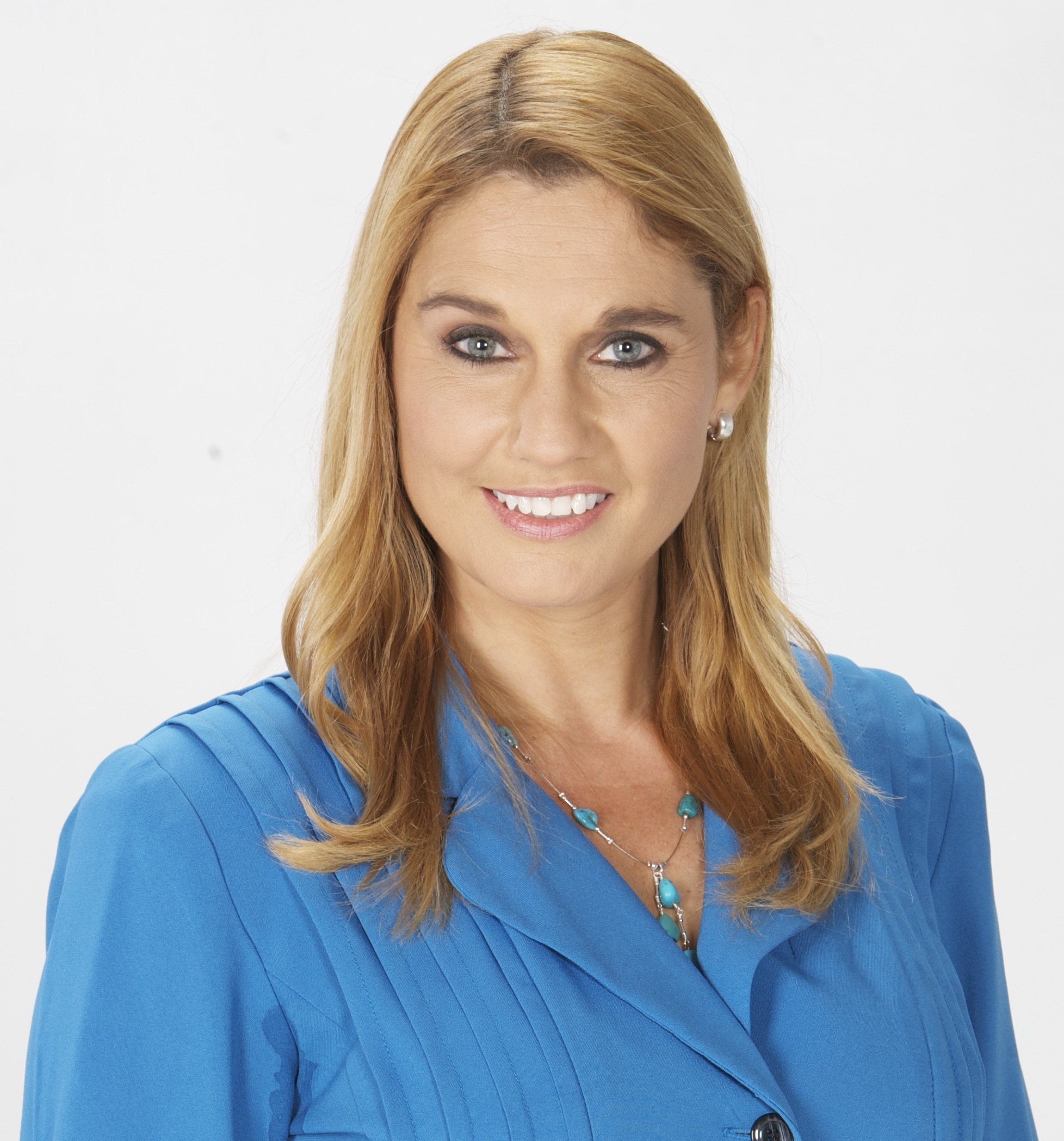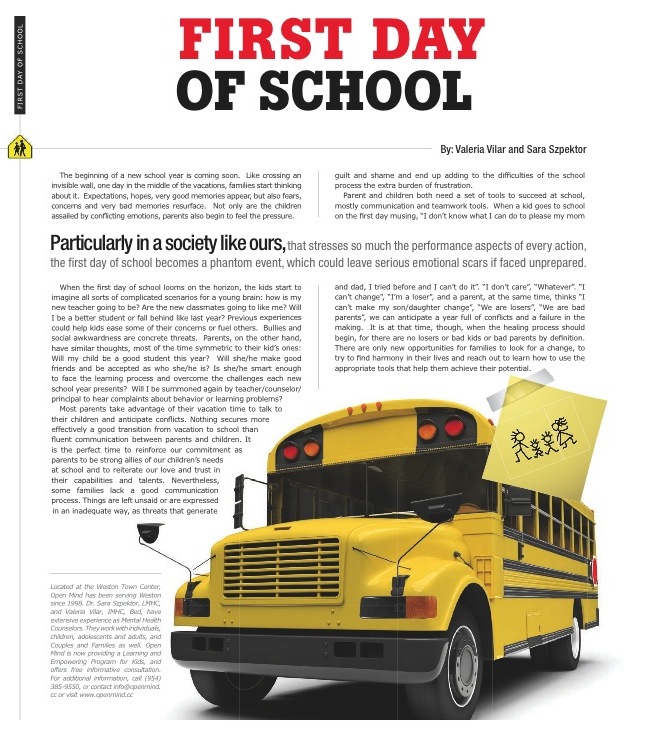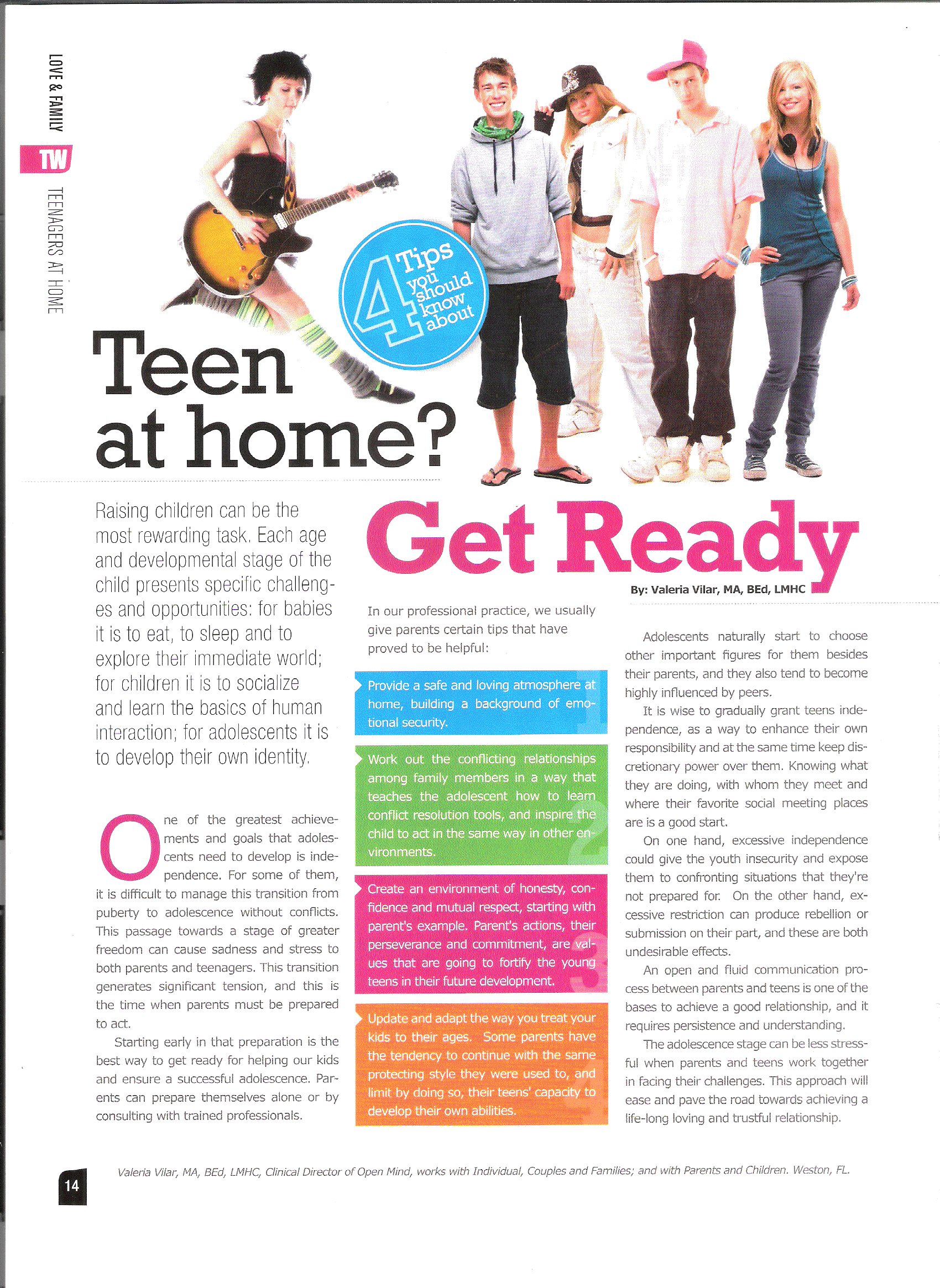


By Valeria Vilar MA, BEd, LMHC
Vacation time is coming to an end. Advertising for school supplies floods the magazines, TV commercials and store shelves. Slowly, both parents and children start to prepare for a new school year. The first day of school will be here soon, and the family will get back into their routine.
Some kids may be a little anxious, and a tear or two may fall from their eyes as they let go mom’s hand that first day of school. While some are shy and reticent, others arrive enthusiastic and adventurous. The child’s attitude depends on several factors, such as their personality and the teachers’ way of receiving them, but mainly, it depends on the attitude that parents take towards supporting them to adapt to this new stage in their lives. Every tool used to get children closer to a positive adaptation will be beneficial. Good communication is the best tool to help them in their growth process.
It is normal for parents to feel hesitant as this moment approaches. “Will she be well accepted?” “Will he miss us?” “What if she doesn’t adapt or feel comfortable?” These are just a few of the many frequent questions that parents raise. Tranquility is the key. Parents are the main support for their child; this is why it is so important for them to remain calm and confident of their child’s abilities.
It is reassuring for your child to get him involved in the transition. Take him to see his new classroom, to meet his teacher, and his classmates before school starts.
Whenever you talk about this matter with other adults, keep a positive and happy attitude, this will be perceived by your child.
It is good to get everything ready the night before: backpack, lunchbox, clothes, and even give your child a night shower, so there will be no delays in the morning that would translate in incremental stress.
It is likely that your child will need to get up at a different time from what he is used to, so it is important for you to start adjusting the schedule a couple of days in advance, to make it easier to wake up when the first day of school comes.
When the big day arrives, it will certainly be a day full of emotions, as everything will be different for your child: the time at which he wakes up, the faces he will see, and the activities he will be part of.
This first day, and perhaps the entire first week, one of the parents, or ideally, both of them, should drop off, and pick up the child from school, as this will give her an added feeling of reassurance.
It is advisable that parents accompany him all the way to the classroom, to help him feel more confident. The need for this will start diminishing as the days go by and the child becomes familiar with the place.
Say goodbye with a smiling face and the promise that he/she will be greeted the same way at the end of the day.
Some children experience the fear of being abandoned, and so they break into tears when saying goodbye. They may tell you they do not want to stay, and the following days they may argue that they prefers to stay home because they have to draw or watch their favorite cartoons. They may also say that they have a headache or stomach ache. This should not always be neglected, as they may actually be feeling pain or discomfort, caused by their stress and anxiety. Parents should be understanding of these symptoms, but always remain calm and not give in and be complacent, as this would hinder their adjustment process. But if these symptoms persist it is important that they receive professional help to achieve the desired adaptation. It is normal for new experiences to generate a degree of anxiety and fear, and this happens in both children and adults. The parent’s task, in order to promote a healthy adaptation process to a new school is to provide their young one with the effective tools for successful achieving this goal. I invite you to consider this new start as an opportunity to learn how to use the appropriate resources to help your children reach their full potential.
I wish all children a successful school year!
Valeria Vilar, MA, BEd, LMHC, is the Clinical Director of Open Mind Psychotherapy & Wellness Center. The center is located at the Weston Town Center since 1998. Additional information, can be reached at (954) 385-9550, and This email address is being protected from spambots. You need JavaScript enabled to view it. or by visiting www.openmind.cc










